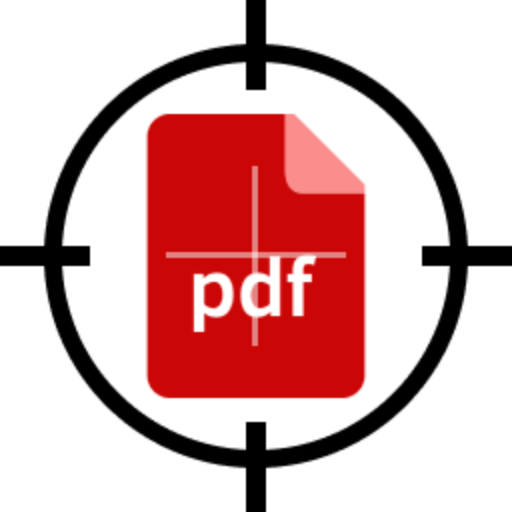EvidenceHunt-comprehensive biomedical literature search
AI-Powered Biomedical Research Assistant
What are the best lifestyle adjustments to improve my testosterone?
Can mindfulness prevent a burnout?
Summarize recent, high impact meta analysis on burnout.
Randomized high impact clinical trials on breast cancer treatment published last month.
Related Tools
Load More
Source Finder
Sourcing academic quotes and journals expert

EBM SEARCH
Finds, summarizes EBM literature, suggests keywords and search strategies.

Consensus Search
Academic consensus finder in scholarly debates.

Easy Sources!
I find and summarize scientific sources supporting a claim for your thesis, with BibTeX citations.

Forager
Precision online searches with expanded capabilities.

PDF Hunter - Free Doc Downloads & Chat
Explore PDF Hunter: Free downloads for .pdf, .docx, .pptx, .xlsx, .txt files, and more. Easily find documents and engage with AI for summaries and chat. Simplify your document experience with PDF Hunter!
20.0 / 5 (200 votes)
Introduction to EvidenceHunt
EvidenceHunt is a specialized information retrieval tool designed to assist users in accessing relevant biomedical literature from PubMed. Its primary function is to generate precise and contextually relevant answers to user queries by leveraging PubMed's extensive database of scientific publications. EvidenceHunt creates tailored search strategies using logical operators and keywords, specifying time frames, publication types, impact factors, and sample sizes to ensure the results align closely with the user's research needs. For example, if a researcher wants to understand the latest advancements in Alzheimer's disease treatment, EvidenceHunt will formulate specific search queries and return the most relevant, high-impact studies available.

Main Functions of EvidenceHunt
Crafting Relevant Search Queries
Example
Generating up to 10 varied and broad search queries using logical operators to find studies related to a particular medical condition.
Scenario
A medical student researching the effects of a new drug on diabetes could use EvidenceHunt to receive a list of the most pertinent studies, ensuring comprehensive coverage of the topic.
Tailoring Search Parameters
Example
Specifying the recency of publications, types of studies, impact factors, and sample sizes to refine search results.
Scenario
A clinician looking for the latest high-impact randomized trials on cancer treatments could filter results to include only those published in the last 12 months with a minimum sample size of 100 participants.
Presenting User-Friendly Summaries
Example
Providing concise and understandable summaries of complex scientific literature for non-experts.
Scenario
A patient advocate seeking to understand new research findings on a specific disease can receive easy-to-digest summaries, making complex information more accessible.
Ideal Users of EvidenceHunt
Researchers and Academics
Researchers and academics benefit from EvidenceHunt by obtaining comprehensive and targeted search results that help them stay updated with the latest developments in their fields, aiding in literature reviews and new research proposals.
Clinicians and Medical Professionals
Clinicians and medical professionals use EvidenceHunt to quickly access high-quality and relevant studies that inform their clinical decisions and ensure they are practicing evidence-based medicine.
Students and Educators
Students and educators can leverage EvidenceHunt to support their learning and teaching needs, finding accurate and up-to-date information for coursework, assignments, and instructional materials.
Patient Advocates and Non-Professionals
Patient advocates and non-professionals benefit from simplified summaries of complex medical literature, empowering them with knowledge about the latest research and treatments related to their conditions of interest.

How to Use EvidenceHunt
Visit aichatonline.org for a free trial without login, no need for ChatGPT Plus.
Begin by visiting the website aichatonline.org where you can access EvidenceHunt without the need for a login or a ChatGPT Plus subscription.
Define your research question.
Clearly outline the main question you want to answer. This helps in crafting effective search queries and retrieving the most relevant results.
Use broad and varied search queries.
Create up to 10 diverse search queries using logical operators (OR, AND, NOT) to cover all possible variations and keywords related to your question.
Customize your search criteria.
Tailor your search by specifying the publication date range, desired types of publications (e.g., meta-analyses, randomized trials), sample size, and preference for high impact factor journals.
Review and analyze the results.
Examine the search results for relevant information. Directly reference sources and ensure your findings are based on the provided data, avoiding extrapolation or assumptions.
Try other advanced and practical GPTs
Mean VC
AI-powered venture capitalist simulation

日越/越日辞書
AI-powered Japanese-Vietnamese dictionary.

ZkDude
AI-powered tool for secure digital identity.

Ad Copywriter PRO: E-commerce
AI-driven ad copy that converts.

Butternut AI Website Builder
AI-Powered Business Website Creation

UP WORK /UpworkPro, Cover Letter
AI-powered cover letter generator for freelancers.

Copy Editor
Refine your text with AI precision.

HaciendaGPT
AI-Powered Tax Guidance for Spain

Your CFO
AI-driven financial insights and strategy.

KOMMO Assistente
Empower your CRM with AI.

Virtual CISO
AI-powered cybersecurity guidance and support.

翻譯蒟蒻 ( 印尼語 )
AI-Powered Translation for Chinese and Indonesian.
- Academic Writing
- Medical Research
- Clinical Trials
- Systematic Reviews
- Evidence Synthesis
Frequently Asked Questions about EvidenceHunt
What is EvidenceHunt?
EvidenceHunt is a tool that accesses PubMed to provide precise and relevant answers to biomedical questions using top search results. It helps in crafting effective queries, customizing search criteria, and analyzing results.
How can EvidenceHunt benefit researchers?
EvidenceHunt aids researchers by streamlining the literature search process, providing access to high-quality and relevant studies, and ensuring accurate and evidence-based answers for their specific research questions.
What types of publications can EvidenceHunt retrieve?
EvidenceHunt can retrieve various types of publications, including meta-analyses, randomized trials, systematic reviews, human intervention studies, protocols, and miscellaneous studies.
Can I specify the recency of publications in my search?
Yes, you can customize your search criteria by specifying the maximum age of publications from the current date, ensuring you access the most recent and relevant research.
Is there a sample size requirement for studies retrieved by EvidenceHunt?
You can set a minimum sample size for the subjects studied in the publications, allowing you to focus on studies with sufficient sample sizes for reliable results.